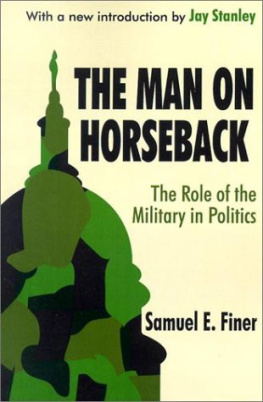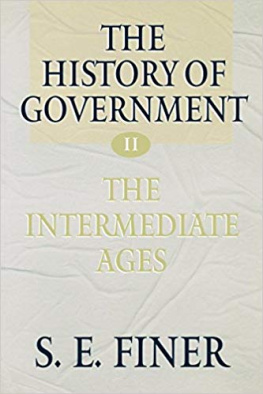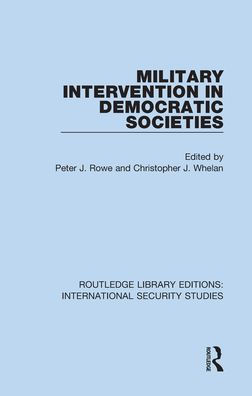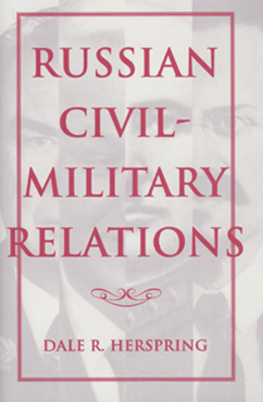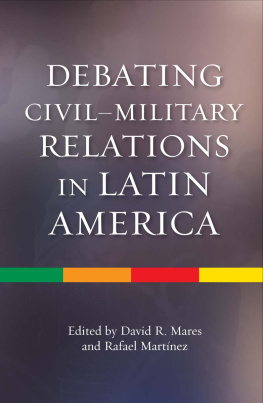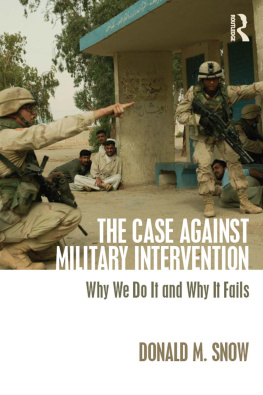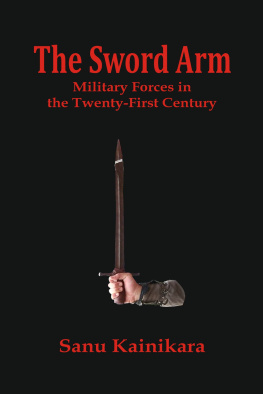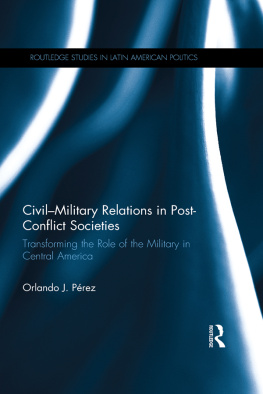Samuel E. Finer - The Man on Horseback: The Role of the Military in Politics
Here you can read online Samuel E. Finer - The Man on Horseback: The Role of the Military in Politics full text of the book (entire story) in english for free. Download pdf and epub, get meaning, cover and reviews about this ebook. year: 1976, publisher: Transaction Publishers, genre: Politics. Description of the work, (preface) as well as reviews are available. Best literature library LitArk.com created for fans of good reading and offers a wide selection of genres:
Romance novel
Science fiction
Adventure
Detective
Science
History
Home and family
Prose
Art
Politics
Computer
Non-fiction
Religion
Business
Children
Humor
Choose a favorite category and find really read worthwhile books. Enjoy immersion in the world of imagination, feel the emotions of the characters or learn something new for yourself, make an fascinating discovery.
- Book:The Man on Horseback: The Role of the Military in Politics
- Author:
- Publisher:Transaction Publishers
- Genre:
- Year:1976
- Rating:4 / 5
- Favourites:Add to favourites
- Your mark:
The Man on Horseback: The Role of the Military in Politics: summary, description and annotation
We offer to read an annotation, description, summary or preface (depends on what the author of the book "The Man on Horseback: The Role of the Military in Politics" wrote himself). If you haven't found the necessary information about the book — write in the comments, we will try to find it.
The role of the military in a society raises a number of issues: How much separation should there be between a civil government and its army? Should the military be totally subordinate to the polity? Or should the armed forces be allowed autonomy in order to provide national security? Recently, the dangers of military dictatorships-as have existed in countries like Panama, Chile, and Argentina-have become evident. However, developing countries often lack the administrative ability and societal unity to keep the state functioning in an orderly and economically feasible manner without military intervention.
Societies, of course, have dealt with the realities of these problems throughout their histories, and the action they have taken at any particular point in time has depended on numerous factors. In the first world of democratic countries, the civil-military relationship has been thoroughly integrated, and indeed by most modern standards this is seen as essential. However, several influential Western thinkers have developed theories arguing for the separation of the military from any political or social role. Samuel Huntington, emphasized that professionalism would presuppose that the military should intervene as little as possible in the political sphere. Samuel E. Finer, in contrast, emphasizes that a government can be efficient enough way to keep the civil-military relationship in check, ensuring that the need for intervention by the armed forces in society would be minimal. At the time of the books original publication, perhaps as a consequence of a post-World War II Cold War atmosphere, this was by no means a universally accepted position. Some considered the military to be a legitimate threat to a free society. Todays post-Cold War environment is an appropriate time to reconsider Finers classic argument.
The Man on Horseback continues to be an important contribution to the study of the militarys role in the realm of politics, and will be of interest to students of political science, government, and the military.
ReviewThe Man on Horseback is old school in new clothes. In the current era of renewed interest in civil-military relations, it is important to revisit previous work on this important topic. Finers thesis is dynamic and raises a much needed ruckus in the civil-military debate.Indeed, the interdisciplinary nature and comparative features of The Man on Horseback makes it especially exciting and timely.
Morten G. Ender, United States Military Academy
Stanleys masterful introduction paints a lively portrait of Finers life and work and instructs us all on the increasing relevance of Finers arguments. It will shake the complacency of those who do not know or cannot say when, why, and how militaries intervene in the politics of countries they are supposed to defend.
James Burke, Texas A&M University
About the AuthorSamuel E. Finer (1915-1993) was professor of government at Manchester University and Gladstone Professor of Government and Public Administration at Oxford University. His published works include the monumental The History of Government from the Earliest Times.
Jay Stanley, professor of sociology at Towson University, is a member of the advisory council of the Inter-University Seminar on Armed Forces and Society, and on the board of editors of its journal Armed Forces & Society. He is the editor of Essays on the Garrison State, and co-editor of Challenges in Military Health Care, both published by Transaction.
Samuel E. Finer: author's other books
Who wrote The Man on Horseback: The Role of the Military in Politics? Find out the surname, the name of the author of the book and a list of all author's works by series.

